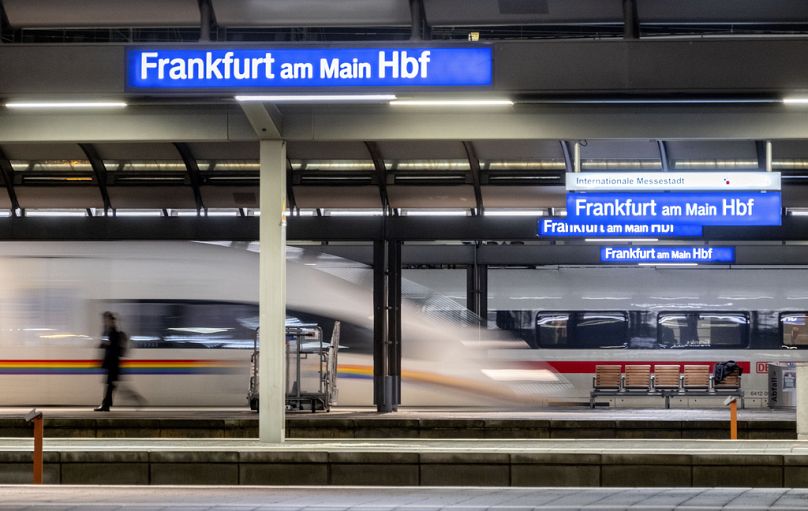The GDL union are in a rancorous dispute with the country’s main railway operator over working hours and pay.
Germany's train drivers brought rail traffic to a standstill again early on Wednesday morning when they began a six-day strike over pay and working hours.
The action by the GDL union will affect passenger services and freight trains operated by state-owned Deutsche Bahn until 18:00 on Monday.
The union held a three-day strike earlier this month and two walkouts last year which lasted up to 24 hours.
On Wednesday, train travel across the country and in many cities ground to a halt again with commuters and other travellers struggling to find alternatives involving long-distance bus or car travel or flights.
Travellers said they were worried, angry or resigned about the situation.
It is "not good," said one commuter. "We're losing two days in a hotel. Well, I don't like it.”
Another said they were in favour of the strike, but admitted its length was "debatable."
As with the previous strikes, around 80 per cent of long-distance trains were cancelled and considerable restrictions were also in place on regional services.
There will also be considerable restrictions on freight transport: “European freight traffic across the Alps, Poland or to Scandinavia as well as the seaports in Holland or Belgium will also be affected,” said Deutsche Bahn.
Even before the strike, a significant drop in cargo volumes had been registered because many customers had cancelled shipments.
In addition to pay raises, the union is calling for working hours to be reduced from 38 to 35 per week without a pay cut, a demand which Deutsche Bahn has so far refused, stating it was only prepared to accept 37 hours.
GDL argues that it would make working for the railway more attractive and help attract new recruits, while Deutsche Bahn says the union's demands aren't practical.
The union said it was "willing to compromise" and proposed a new deal on Tuesday.
This contains the same wage agreement we concluded with 18 other railway companies in Germany. This means that it is now up to Mr Seiler whether we continue to strike," said train driver and GDL spokesman Philipp Grams, referring to Martin Seiler, Director of Human Resources and Legal Affairs at Deutsche Bahn.
But on Wednesday, the train operator again rejected the union's proposals as a basis for further negotiations, calling them a “repetition of well-known maximum demands".
With negotiations stalled, Germany's transportation minister said the government was not ruling out arbitration proceedings between GDL and Deutsche Bahn.
“If things are so deadlocked that we obviously can no longer talk to each other, then we urgently need mediation or arbitration," Volker Wissing said.












